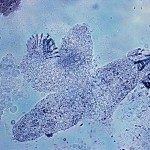Présentation
 Bryan GREENHOUSE – University of California (San Francisco, USA)
Bryan GREENHOUSE – University of California (San Francisco, USA)
Biography: Dr. Bryan Greenhouse is an Associate Professor at the University of California, San Francisco in the Division of HIV, Infectious Diseases, and Global Health at Zuckerberg San Francisco General Hospital. Dr. Greenhouse completed his MD at the University of Pennsylvania School of Medicine and his MA in Biostatistics at the University of California, Berkeley. Dr. Greenhouse’s research program is focused on understanding the epidemiology and biology of malaria by applying laboratory and analytical methods to field studies, primarily in Africa. Specifically, his current projects focus on understanding the development of naturally acquired immunity to malaria, creating novel serologic tools to measure malaria exposure and immunologic protection, and using parasitepopulation genetics and spatial data to understand parasite transmission and evolution.
 Chris DRAKELEY – London School of Hygiene & Tropical Medicine (Londres – Royaume-Uni)
Chris DRAKELEY – London School of Hygiene & Tropical Medicine (Londres – Royaume-Uni)
Biography: Chris Drakeley is a Professor of Infection & Immunity at the London School of Hygiene & Tropical Medicine. He has more than 25 years experience of working on malaria with a research focus on developing a better understanding of malaria transmission of parasites. This includes studies aimed at understanding the fundamentals of malaria transmission dynamics including risks factors for transmission in endemic populations and defining the infectious reservoir of malaria. His group is involved in the comparison and optimisation of approaches to measure transmission with a focus on serological markers for exposure to infection. These components are linked together by the evaluation of strategies designed to reduce and block transmission including transmission blocking vaccines and drugs.
Abstract: Increasing resources have recently been applied toward malaria control and elimination with good results. Continued progress will require more than simply scaling up current activities. Designing, targeting, and evaluating interventions requires accurate definition of the infectious reservoir and measurements of transmission. We will discuss research defining human to mosquito transmission and new approaches to using antimalarial antibodies in measuring exposure to the malaria parasite.
Contact: Ivo MUELLER ( ivo.mueller@pasteur.fr – Poste 94.59)
